Extrajudicial Killings: 437 victims in 10 months

At least 437 people fell victim to extrajudicial killings by law enforcement agencies and 26 others were forcibly disappeared across the country in the last 10 months, a rights body said yesterday.
Of the victims, 276 were killed in the nationwide anti-drug operation from May 15 to October 31, according to an assessment report of the Ain O Salish Kendra (ASK) on the activities of the National Human Rights Commission (NHRC).
Tamanna Hoq Riti, assistant coordinator (media and international advocacy) of the ASK, disclosed the data, based on newspaper reports, at a civil society dialogue at The Daily Star Centre in the capital.
“There are some limitations in section 18 [of the National Human Rights Commission Act 2009]. We can seek report [on extrajudicial killings from the home ministry] but are unable to investigate those,” NHRC Chairman Kazi Reazul Haque told the programme organised by the ASK.
The rights boss, however, didn't say much about extrajudicial killings, enforced disappearances or anti-narcotics operation.
The ASK report mentioned that the NHRC had earlier given the government two specific recommendations -- halting operation of law enforcers in civil dress and ensuring presence of two witnesses during any arrest -- for stopping extra-judicial killings and enforced disappearance. The NHRC also pledged to take the matter to the High Court, if necessary.
Though the government ignored the recommendations, the NHRC did not go to the HC, the report pointed out.
In this context, the NHRC should continue holding dialogue with the government, which should also cooperate with the commission, said the ASK.
According to the ASK report, the NHRC sent 154 letters to the home ministry between 2012 and 2016, seeking explanations about alleged involvement of law enforcement agencies in 32 custodial deaths, 25 disappearances, 112 extrajudicial killings and also on several allegations of harassment. But the ministry did not reply.
The rights body, however, mentioned that the ministry responded to some other letters from the NHRC, saying there was “no involvement of law enforcers” in the extrajudicial killings or “action has been taken”.
The ASK also criticised the NHRC for not playing its due role when the government made different acts, including the Digital Security Act 2018, the National Broadcasting Act 2016, the Anti-Terrorism (Amendment) Act 2013, and the Information and Communication Technology (Amendment) Act 2013.
“The NHRC had a greater opportunity and power to work on the issues regarding violation of people's civic and political rights. However, the commission has failed to use its opportunity again and again,” it said.
Citing the 2011 report of the Global Alliance on National Human Rights Institutions (GANHRI), the ASK said Bangladesh has been on the list of “B category” countries since 2011.
Though the GANHRI in its 2011 and 2015 reports recommended amending the NHRC act to give it more power and independence, no amendment has yet been brought to the act, the ASK pointed out.
The rights body, however, praised the positive role of the NHRC on several occasions such as in the aftermath of the killing of Teknaf municipality councillor Akramul Haque in an anti-narcotics drive.
ASK Executive Director Sheepa Hafiza urged the NHRC to set up a desk to protect rights defenders.
On the upcoming national election, speakers urged the administration to be more sincere in protecting minorities from possible polls-time violence.

 For all latest news, follow The Daily Star's Google News channel.
For all latest news, follow The Daily Star's Google News channel. 

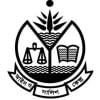
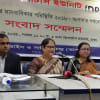
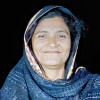

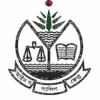

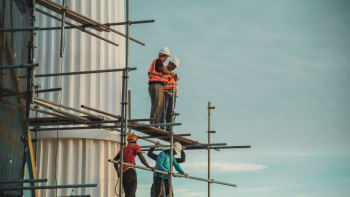
Comments